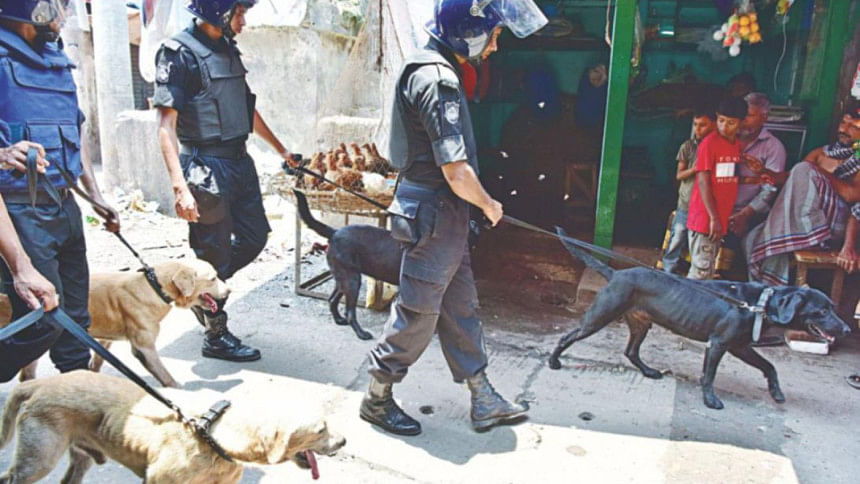Combatting spread of narcotics

The government's plan of action apparent in the recently launched anti-narcotics drive is not likely to deliver the expected results, it being not an integrated approach which a problem like drugs and narcotics merits. Further, the anti-trafficking operation which is an inherent adjunct to the anti-narcotics drive—and that is what this particular effort seems to be all about—is being conducted in a selective manner. Reportedly, those lawmakers and members of law enforcing agencies listed by the PMO's office have remained outside the dragnet. It is surprising to hear responsible officers of the home ministry say that they would go after these people only after the national election.
As long as the big fishes and godfathers remain untouched, the sale and use of narcotics will continue. Merely going after the vectors and dealers in these materials will neither stifle proliferation nor use of the drugs, but instead make them more difficult to be tracked and anticipated. And as the report in this paper shows, the methods employed by the purveyors of drugs and narcotics have changed.
We suggest, therefore, that instead of a piecemeal manner, a holistic approach be employed. And that would require, in addition to the anti-trafficking drive, a look at both the demand and supply side of the problem. Unless the demand for drugs is reduced, there will be no dearth of suppliers to fulfil the demand. Furthermore, the problem being an international one, we must involve our neighbours, in particular, in our efforts to address it effectively. A good deal of the demand in Bangladesh is being met by sources from across our eastern and western borders.

 For all latest news, follow The Daily Star's Google News channel.
For all latest news, follow The Daily Star's Google News channel. 



Comments